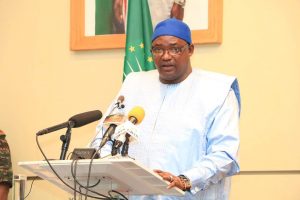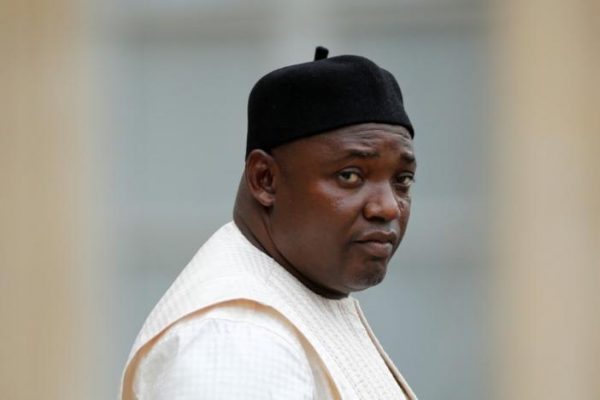
Tell the truth, pleasant or unpleasant. Theodore Roosevelt & John.F. Kennedy former American presidents said this and why they said it.
The words are especially important today decades & decades later because President Adama Barrow’s bind supporters does not respect dissent. They attack truth-telling journalists and they bully critics. “We’re citizens, not subjects. We have the right to criticize government without fear”.
President Barrow’s supporters may think this is a winning strategy for them but the rest of them lose. Let’s face it, these are challenging times for critics, and journalists, very challenging times, and they are about to get more so years from now.
When freedom of expression is stifled, then bad decisions are often made, and heart-breaking tragedies occur – too often on a breath-taking scale that can leave societies wondering: how did this happen.
An anecdote from two former US Presidents Theodore Roosevelt and John F. Kennedy; as to why criticizing the President matters in a democracy?
Let me start a little differently, with some words to live by, to report by & remind about the relationship between the President & the citizenry.
Let it be clear to Gambians “without debate, without criticism, no Administration and no country can, succeed-and no republic can survive”. And in part, aesthetic criticism can genuinely prove aesthetic proposition; if they concern matters of factual or logical evidence, validates on the need for the public to be able to criticize the chief executive — something very strange in our new and evolving democracy, to blind supporters of President Barrow & his government officials. But if the President were the one getting in the way, the people had to have the ability to say so and participate in the political process.

“The president should be supported or opposed exactly to the degree which is warranted by his good conduct or bad conduct. His efficiency or inefficiency in rendering loyal, able and disinterested service to the nation.
Therefore, it is necessary that there should be full liberty to tell the truth about his acts and this means it’s exactly necessary to blame him when he does wrong as to praise him when he does right. Any other attitude in an American citizen is both base and servile.”
“To announce that there should be no criticism of the president or that we are to stand by the president, right or wrong, is not only unpatriotic and servile but is morally treasonable to the American public. Nothing but the truth should be spoken about him or anyone else, but it’s even more important to tell the truth, pleasant or unpleasant, about him than about anyone else.” Noted President Roosevelt.
And, John F. Kennedy echoed these words in 1961“Without debate, without criticism, no Administration and no country can, succeed-and no republic can survive. That is why the Athenian law-maker Solon decreed it a crime for any citizen to shrink from controversy.
And that is why our press was protected by the First Amendment–the only business in America specifically protected by the Constitution–not primarily to amuse and entertain, not to emphasize the trivial and the sentimental, not to simply “give the public what it wants”–but to inform, to arouse, to reflect, to state our dangers and our opportunities, to indicate our crises and our choices, to lead, mould, educate and sometimes even anger public opinion.
No President should fear public scrutiny of his program. For from that scrutiny comes understanding; and from that understanding comes support or opposition. And both are necessary. I am not asking your newspapers to support the Administration, but I am asking your help in the tremendous task of informing and alerting the American people. For I have complete confidence in the response and dedication of our citizens whenever they are fully informed.
I not only could not stifle controversy among your readers–I welcome it. This Administration intends to be candid about its errors; for, as a wise man once said: “An error doesn’t become a mistake until you refuse to correct it.” We intend to accept full responsibility for our errors; and we expect you to point them out when we miss them. “concluded.
These changes would go far – but certainly not all the way – toward ensuring that future citizens under future administrations can continue to be able to question and criticize their government without fear of being publicly humiliated, bullied and prosecuted by their government and agitators.
It would also set a clear example to the rest of the world that, in a truly democratic republic, the suppression of journalists, dissents and critics cannot be tolerated. Then the Gambia could no longer be used as an excuse by repressive governments around the world to say: Dictatorship.





